Turkey's EU Path Entering a Dead-end Street
Adelina Marini, July 22, 2016
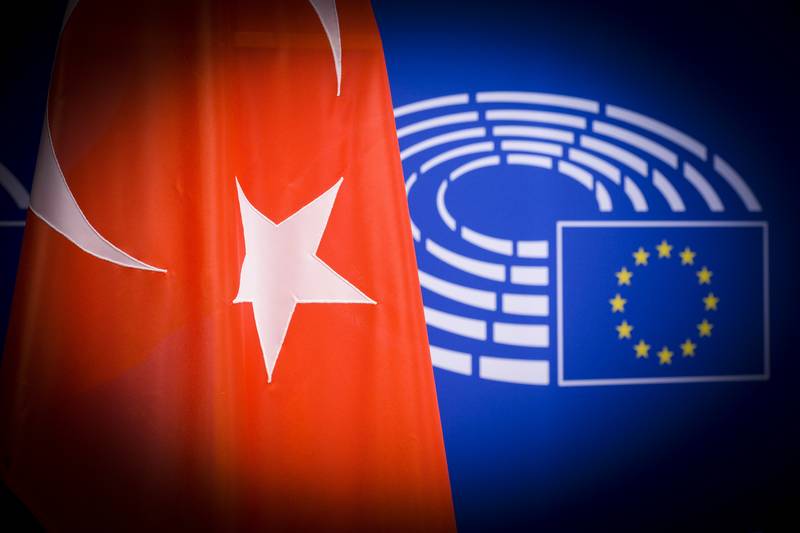
Following the failed coup in Turkey, the European Union keeps advancing into the Hamletian dilemma – should Turkey be part of the Union, or not – and realises more and more that there is far more than one answer to this question. The problems are on several levels and a large portion of them are within the European Union itself. Turkey’s road to the Union is quite long and does not go in sync with the Union itself, whose foundations were laid with the idea of uniting the continent after the devastating wars of the early 20-th century and protecting the peace. This is also the motive that has been driving European unification and integration forward. Turkey’s European way is a part of the Ataturk civilisation swerve towards the Western liberal-democratic model. From the very start, however, there has been great mistrust of Turkey.
Turkey made its first request to join the European Community back in 1959 and filed for membership in the EU 1987. Negotiations started in 2005, but are difficult, slow, and with growing doubts on both sides about their ultimate goal. Turkey of the time when the application was filed back in ’87 is a very different from the Turkey, which began negotiating in 2005, and still more different from the Turkey, which opened the 16th chapter in a row less than a month ago (on June 30). In this time, the country made a U-turn towards undermining the secular orientation of the country and return towards the authoritarian model of governance, which leaves a tangible religious aftertaste. The European Union, too, has not remained static. It has evolved from a loose economic community into a Union with several circles, each with a different gravitational pull.
The Union’s system of values has survived several shocks as well with the choice of an illiberal model in some of the new member states and with the growing euroscepticism, which in some countries degraded to the nationalism of the pre-war years of the beginning of the 20th century. The migrant crisis further stimulated attacks against European values and spawned the largest inter-Union tension since the Union’s creation. It even managed to surpass the euro area crisis in magnitude. All this explosive cocktail requires a rethinking of the European Union itself and of one of its most important and successful policies so far – enlargement. Up until the latest accession to the European Union in 2013 (Croatia), enlargement had great transforming power and served as a magnet for countries, which believed the Union has no alternative and neither does its system of values. It looked like countries were joining it exactly because of its values.
Currently, however, it is just the most problematic and geopolitically complicated countries that are left in the enlargement cellar, some of which no longer perceive the Union as the unquestionable authority that it was for the first large wave towards South-Eastern Europe back in 2004 and 2007. Some of those, who survived the bloody disintegration of former Yugoslavia, on the other hand, do not trust the EU’s capability of remaining the peace project that it was in the beginning, due to its failures in preventing or stopping the war and also its inability to solve the problems’ stemming from the war’s legacy. Of all these countries it is undoubtedly Turkey that is the most complicated one, for it is economically fully emancipated, has huge geopolitical influence, and its diaspora in the EU is numerous and powerful. This makes the EU’s previous 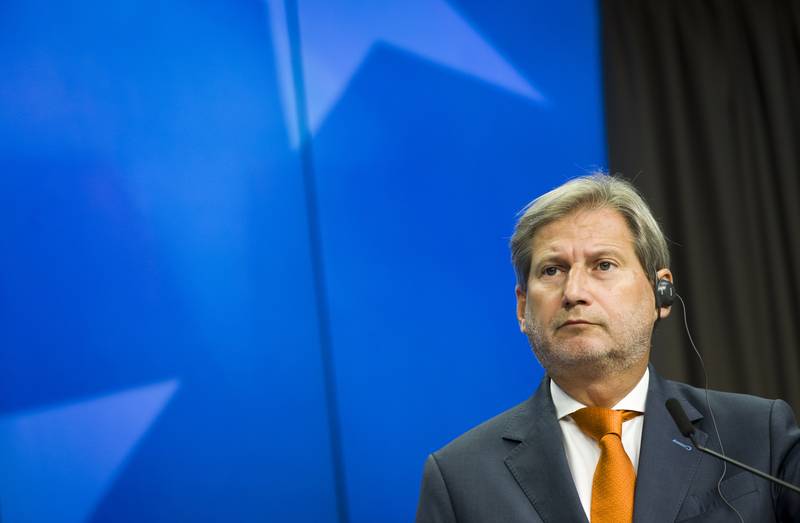 approach towards candidate states totally helpless in generating a transformation and a solid direction.
approach towards candidate states totally helpless in generating a transformation and a solid direction.
Moreover, the EU has found itself in a situation of attempting to convince itself that it has not turned from an authority and role model into a sick man, depending on Turkish will. The Commissioner for Enlargement Negotiations Johannes Hahn (Austria, EPP) attempted to dispel this feeling on Monday during the emergency hearing in the European Parliament’s foreign affairs committee, dedicated to the coup attempt in Turkey. “Turkey needs Europe at least as much as we have interest in having good relations with Turkey. There really is a balance there. There shouldn’t be an impression that we depend on Turkey in any way”, he told MEPs in Brussels. Ankara’s behaviour, however, further enhances the feeling that Turkey’s integration in the EU is impossible anywhere in the foreseeable future. A good indicator for that are the latest meetings on opening “harmless” chapters in addition to the events in Turkey after July 16th.
Turkey wants to participate in the reform of the EU
The EU committed to working towards unfreezing Turkey’s integration process, after the country agreed to aid the Union in containing the huge flow of refugees, passing through Turkey. This is how the relatively more frequent opening of chapters began. There was one chapter opened in December and the next opening was on June 30th – the 16th chapter in a row – number 33 “Financial and budgetary provisions”. During their more frequent contacts over the last nine months, full credit for which is due to the migrant crisis, rifts of tectonic magnitude appeared between the EU and Turkey. The EU is fully aware that it is dealing with a government, which has a different view on democracy and rule of law, but kept playing along with what it started by beginning negotiations in 2005. Over the last year the EU has been attempting to pass Turkey the message that the opening of chapters is part of the democratic process and not a reward for geopolitical cooperation, to a negative effect.
Instead of taking criticisms to heart and committing to their implementation, the Turkish side criticises the EU for its own shortcomings. On June 30th, European Affairs Minister Ömer Çelik asked for the EU to sweep its own backyard, for there are far-right movements blossoming in it, as well as Islamophobia, anti-Semitism, and racism. “These are the main threats against European civilisation”, he said at a press conference after the opening of Chapter 33. In his words, mainstream political parties should increase their power and not let themselves be weakened by extremist movements. “European integration, without finding solutions to its own problems, cannot give hope to its citizens and the countries around it. So, it’s imperative that the EU takes certain reforms”, added Turkey’s EU minister and made it quite clear that the country wishes to participate in the formation of the Union’s future.
"Europe needs a fresh start with a fresh vision. Such a start will have to include Turkey", Ömer Çelik was adamant. Foreign Minister Mevlüt Çavuşoğlu in turn demanded again that the EU ceases to support the Kurdish PKK party, likening them to Islamic State. “Unfortunately, we see a double standard towards Turkey”, he said and criticised those politicians, who provide a platform for the PKK. “If you allow PKK to set up a tent, it means allowing Daesh to set up a tent in the middle of Brussels. Terrorism is terrorism”, summarised Minister Çelik. Called to defend the EU from criticism were Dutch Foreign Minister Bert Koenders and Enlargement Negotiations Commissioner Johannes Hahn (Austria, EPP). The minister, to whom this was the last day at work representing 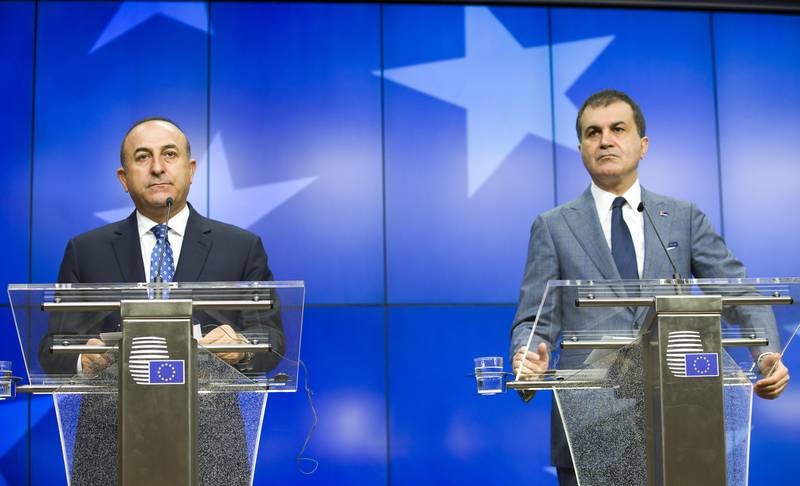 the rotating presidency of the Council, attempted to strike back by explaining that fundamental rights and freedoms should never fall prey to the fight against terrorism.
the rotating presidency of the Council, attempted to strike back by explaining that fundamental rights and freedoms should never fall prey to the fight against terrorism.
"Let’s not delude ourselves - this is a fight for the European values and that includes freedom of expression and the rule of law", stated the Dutch minister. The Commissioner added that this also means responding within the boundaries of rule of law and standing for freedom of expression. Criticism against Turkey was also pointed at the refusal of Turkish authorities to change their repressive anti-terrorism law – one of the conditions for securing a lifting of the visa regime. Turkish reaction, however, was sharp. According to Mevlüt Çavuşoğlu, when we talk about terrorism double standards are to be avoided regarding the freedom of expression. The minister did not fail to mention France, which introduced a state of emergency because of the series of attacks there. Changing the anti-terrorism law would only encourage terrorists, he added. This was, however, back at the end of June, before introducing a state of emergency in Turkey, coupled with a suspension of the European Charter on Human Rights.
The death penalty is a red line
In the first hours following the failed attempt the EU demonstrated a rare instance of unity in its cautiousness regarding events in Turkey, which have a strong geopolitical hue. The subject took over the last meeting of the Union’s foreign ministers before the summer break on July 18 and even managed to overshadow the debut of Boris Johnson at the European scene as a foreign minister. The ministers came out with brief conclusions, in which they strongly condemned the coup attempt, but also urged Turkish authorities to restraint. The 28 further underlined the necessity for respect of human rights and fundamental freedoms. A special focus was placed on the death penalty, following Turkish President Recep Tayyip Erdoğan’s appeal for its reinstatement. EU High Representative for Foreign Affairs Federica Mogherini (Italy, Socialists and Democrats) warned that reinstating the death penalty means an end to membership negotiations.
During the discussion of what is going on in Turkey in the European Parliament’s foreign affairs committee, many MEPs also called for the EU defining the death penalty as a red line, whose crossing would mean an unequivocal ceasing of enlargement negotiations. Debate in the committee illustrated how much has Turkey changed and thus fears in the EU as well. Committee Chairman Elmar Brok (EPP, Germany) expressed his bewilderment at the speed which Turkish authorities answered the coup attempt with and his concern at Turkish President Recep Tayyip Erdoğan getting closer with his Russian counterpart Vladimir Putin. “But when we see that a meeting with President Putin has been planned, then I hope that it's not going to be a festival of autocrats”. Commissioner Hahn stated 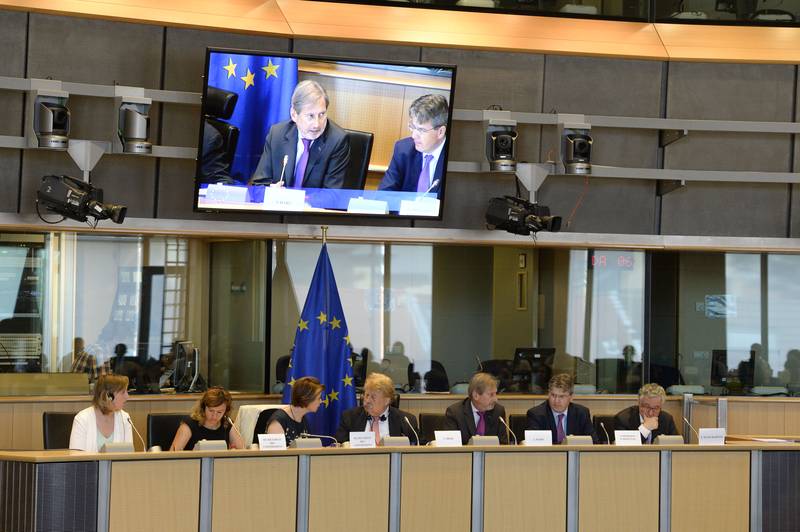 that there is nothing to discuss – reinstating the death penalty is an exclusion from the list of possible EU membership candidates.
that there is nothing to discuss – reinstating the death penalty is an exclusion from the list of possible EU membership candidates.
All MEPs, who spoke, regardless of nationality or affiliation with a particular political power, were cautious. Othmar Karas (EPP, Austria) stated that the dialogue with Turkey should not be discontinued, for negotiations are a means for pressuring Erdoğan. He proposed that the EU monitors events in Turkey separately from the negotiation process in cooperation with the Council of Europe’s mission. European Parliament rapporteur on Turkey Kati Piri (Socialists and Democrats) pointed out that in the span of three years Turkey has been causing concern by trimming freedoms and shutting up critics. “I very much hope that recent events will not be used as justification to further Putinise Turkey”. She also urged that Turkish representatives be invited as soon as possible to the foreign affairs committee to clear up the situation.
Mark Demesmaeker from the group of European Conservatives and Reformists (Belgium) asked why does Europe negotiate at all with a state of this type and how are we to interpret the fact that Russia and Turkey are getting so close. Ivo Vajgl (ALDE, Slovenia) made a long speech in which he turned things towards the European Union itself. He reminded that Turkey has another choice, not just EU membership, especially in a situation where Putin comes up as a timely ally. He feels there is a clear danger that, should the EU continue to marginalise its neighbouring states, it will ultimately lose them. “It was too long that we've been closing our eyes for the fact that destabilisation of Turkey was on the agenda. It should have happened immediately after the war in Iraq, involvement of the Kurdish element and after the war in Syria. We didn’t care, we didn’t realise that it is our interest not to destabilise Turkey, to help Turkey even though it sounds absurd”, explained the Slovenian MEP.
He pointed out that Turkey was for too long been exposed to “our internal European battles about do we want a Muslim country in EU or not, is it admissible, is it OK”. Negotiations have been postponed for absurd reasons. Turkey was humiliated, continued the Liberal MEP from Slovenia. He did not neglect to mention as a mistake of the EU the membership of Cyprus as well, where problems with Greece were transferred to European soil. Mario Borghesio of the Europe of Nations and Freedom group (Italy) believes that the coup has revealed the true face of Turkish democracy. “We have to open our eyes now”, he urged and also took up the Russia issue. Slovenian MEP of the EPP group Alojz Peterle warned that because of events in Turkey, Europe should expect a new category of refugees. “Again we have hard and soft power confronting again”, he concluded.
Some MEPs advocated directly for cessation of negotiations, while others demanded that it is clearly explained to Turkey that it is receiving aid from the EU only and exclusively for its democratisation. Yet third ones openly stated that Turkey is not wanted in Europe as a member, but it is welcome as a partner. The enlargement negotiations commissioner attempted to calm the discussion down by explaining that Turkey is in all ways very important. In his opinion, warm-up of relations with Russia is not supposed to cause alarm, for both countries are key players in the region and could play a leading role in Syria.
All of this, however, happened on Monday, when there could still be any doubts about the true nature of purges in Turkey. There is hardly any of those left. The EU is once again faced with the dilemma of what to do with dictators. Should it participate in their dethronement, consequences are catastrophic and the Union is unable to bear the responsibility for them. Should it work with them, it runs contrary to its own system of values. Until recently, although the dilemma was the same, it was easier, because dictatorship was turning more and more into a thing of the past, but now it is a future trend not only outside the EU, but within it as well. The long line of embarrassing questions in the relationship between the EU and Turkey are now demanding an answer. The EU has kept silent since Monday (while this article was being translated from Bulgarian EU came up with a statement condemning the purge in Turkey), 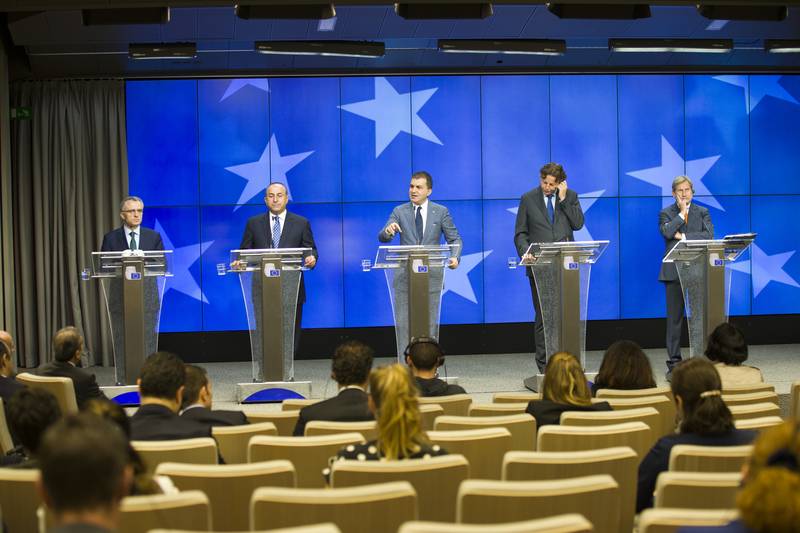 watching over 60 thousand people being fired, arrested, or investigated in connection with the coup.
watching over 60 thousand people being fired, arrested, or investigated in connection with the coup.
The problem is that even if the EU should cease the negotiation process with Turkey immediately as of today, this would hardly stop Erdoğan. The Union currently possesses neither sticks nor carrots to drive Turkey back into the process. Moreover, it is not clear whom it is to speak with. On one side is the government claiming that the EU continues to be a goal to the country, but on the other side President Erdoğan is demonstrating the exact opposite. What is happening in Turkey could pose a serious risk to EU security and reopen the doors to refugees. Any hasty reaction by the Union could also bring about internal tension in the countries where Turkey has a serious diaspora. Turkey also has a strong influence in Bosnia and Herzegovina, whose stabilisation and return to the European path the Eu took to heart two years ago. In other words, the EU currently has no useful move, except sitting back and watching events unfold in Turkey.
Translated by Stanimir Stoev
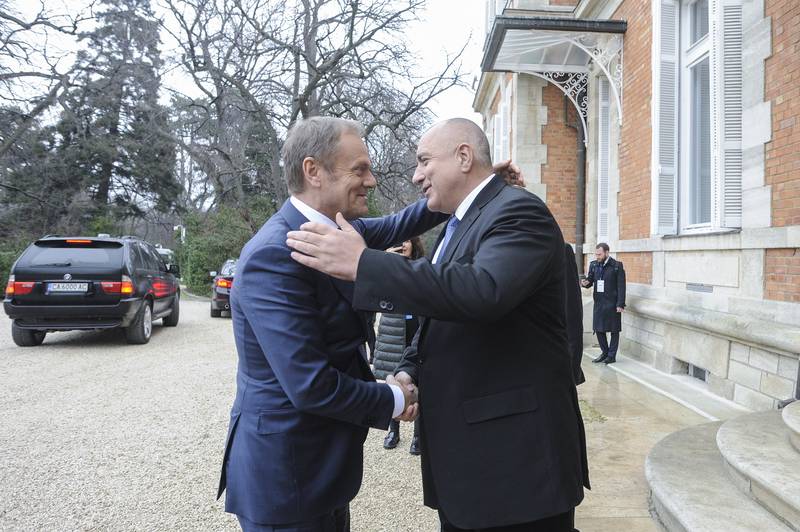 Donald Tusk, Boyko Borissov | © Council of the EU
Donald Tusk, Boyko Borissov | © Council of the EU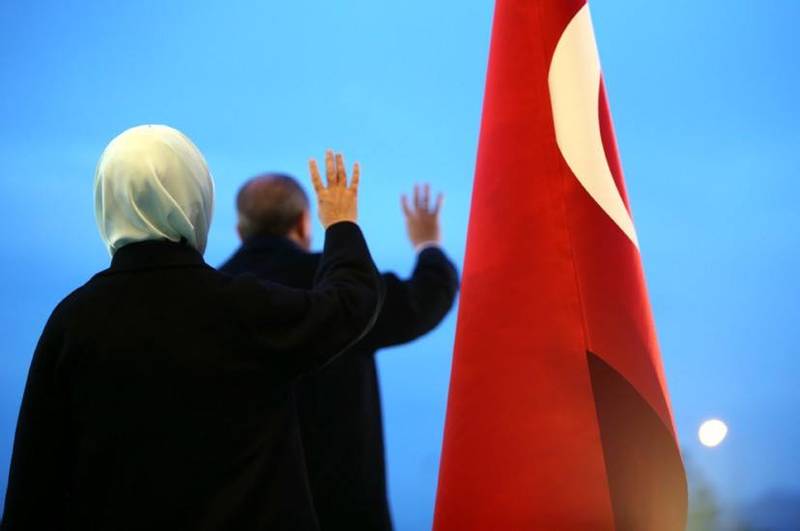 | © Turkey Presidency
| © Turkey Presidency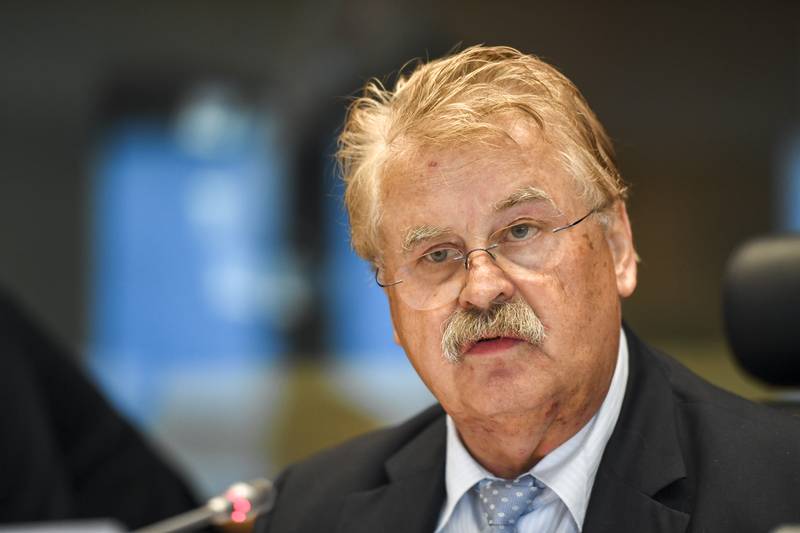 Elmar Brok | © European Parliament
Elmar Brok | © European Parliament